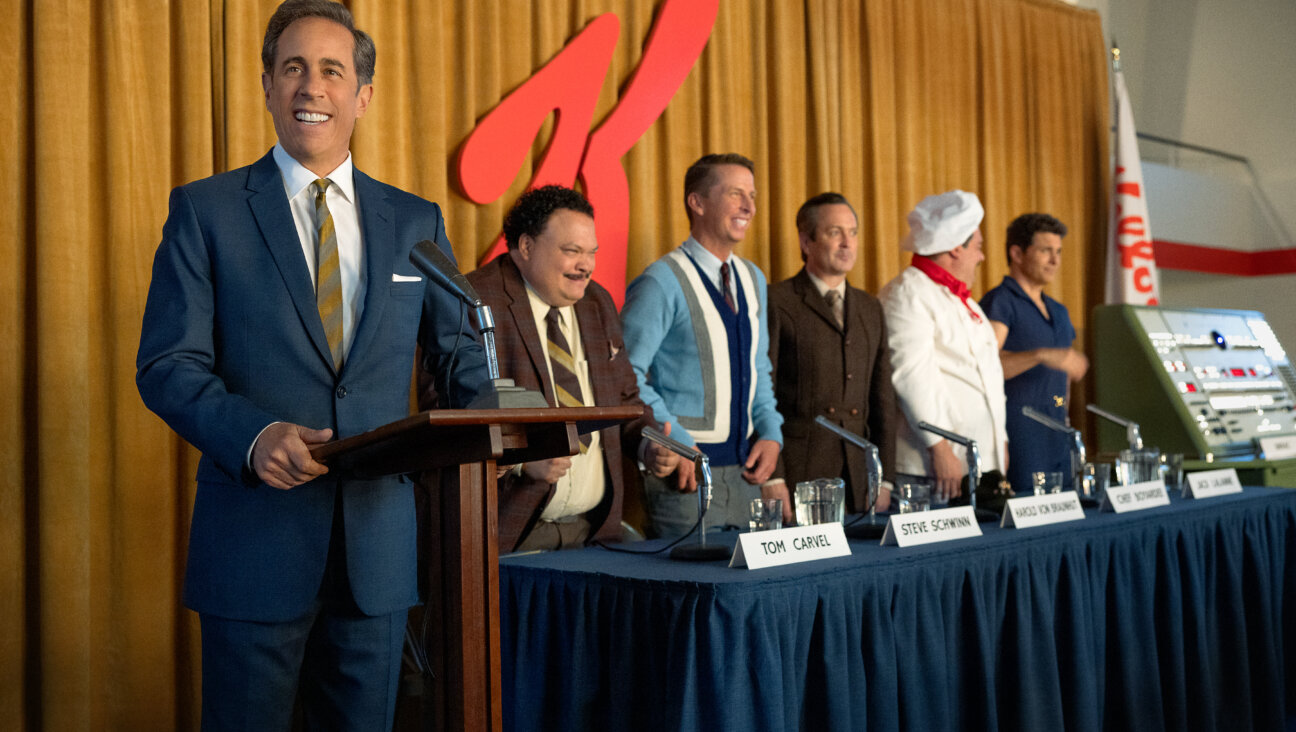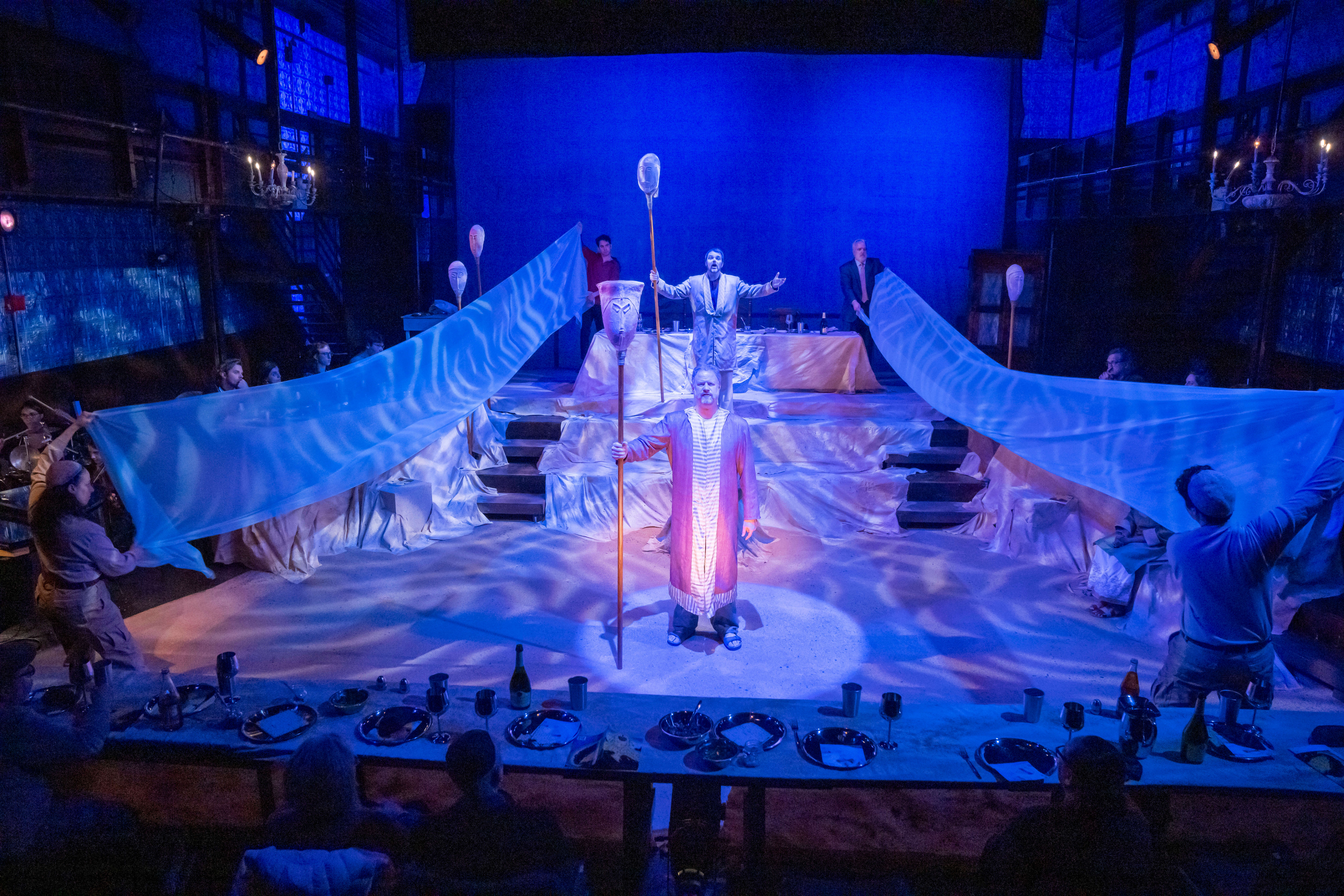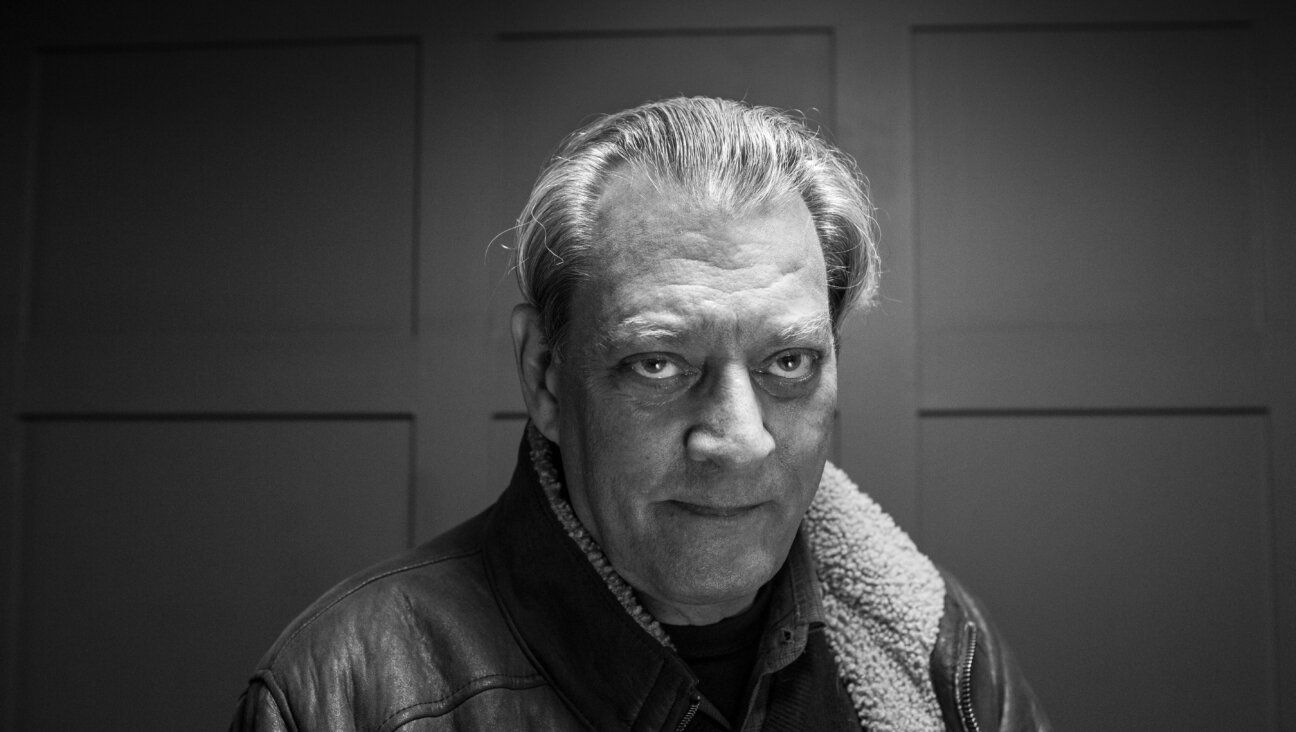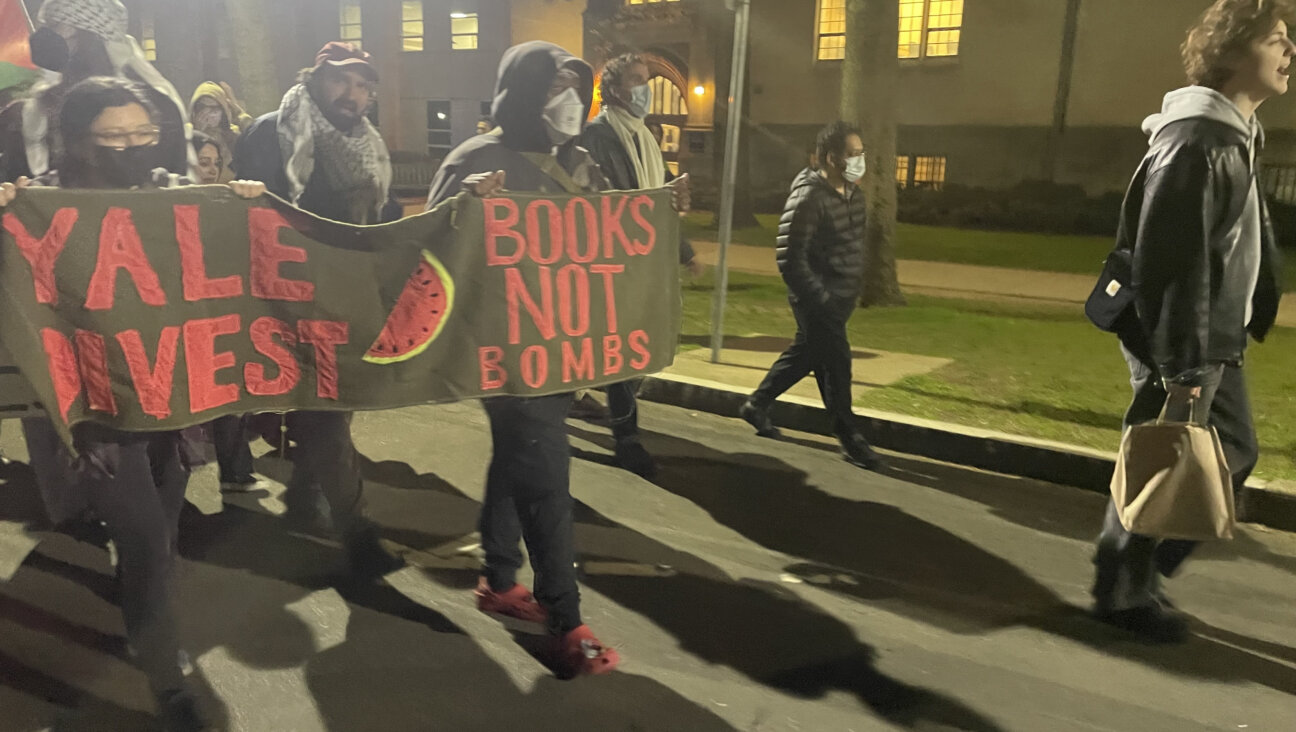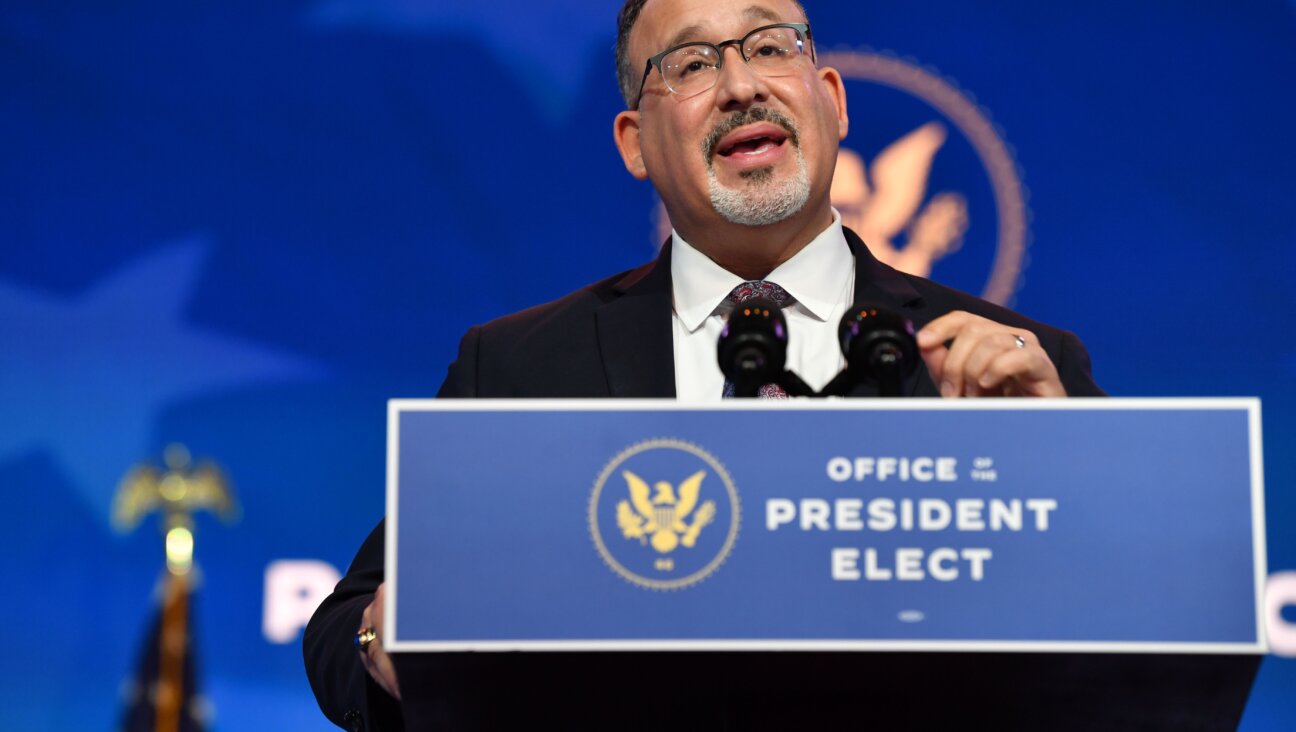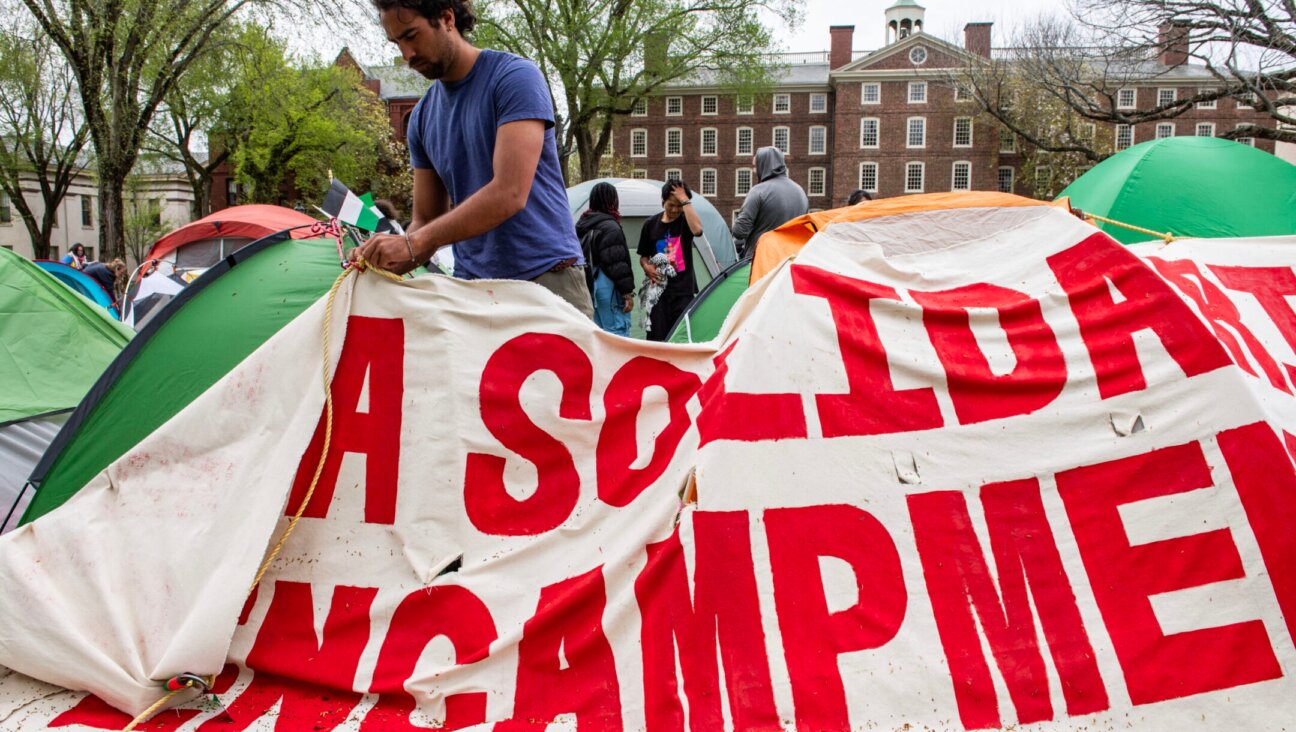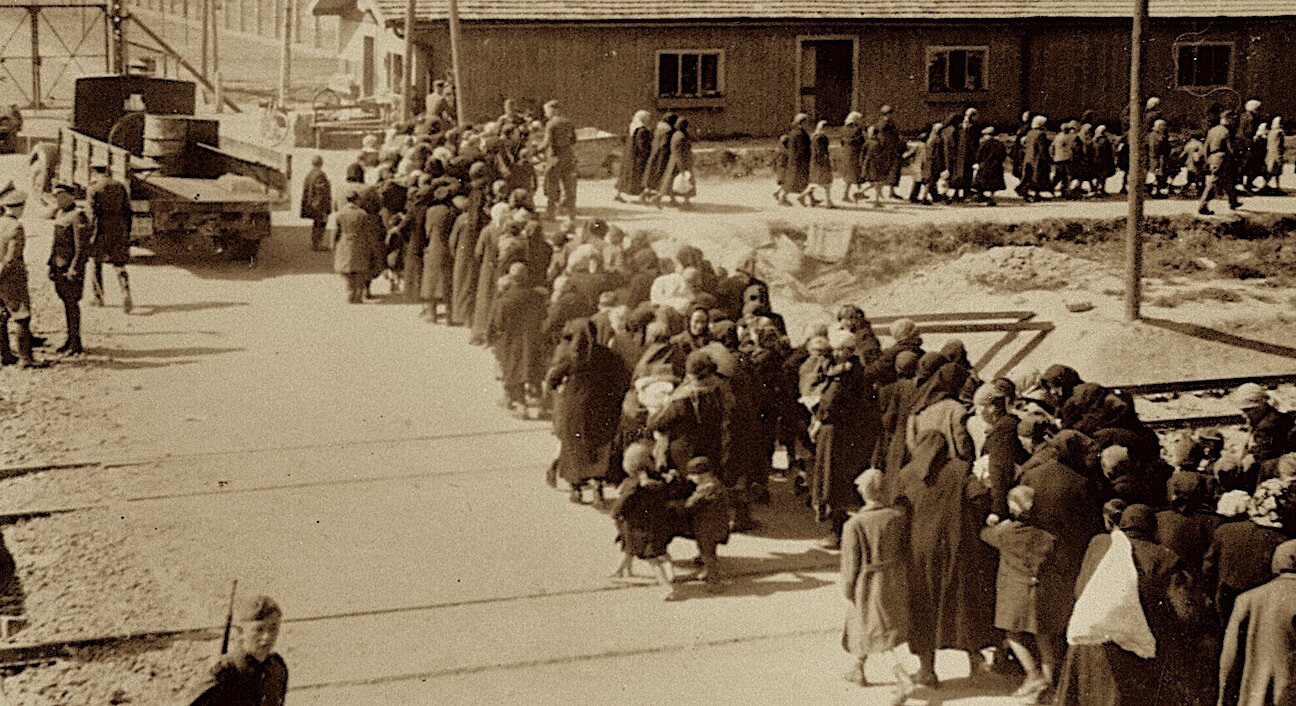French crooner Charles Aznavour loved Jews. A new museum in Armenia will tell that story.
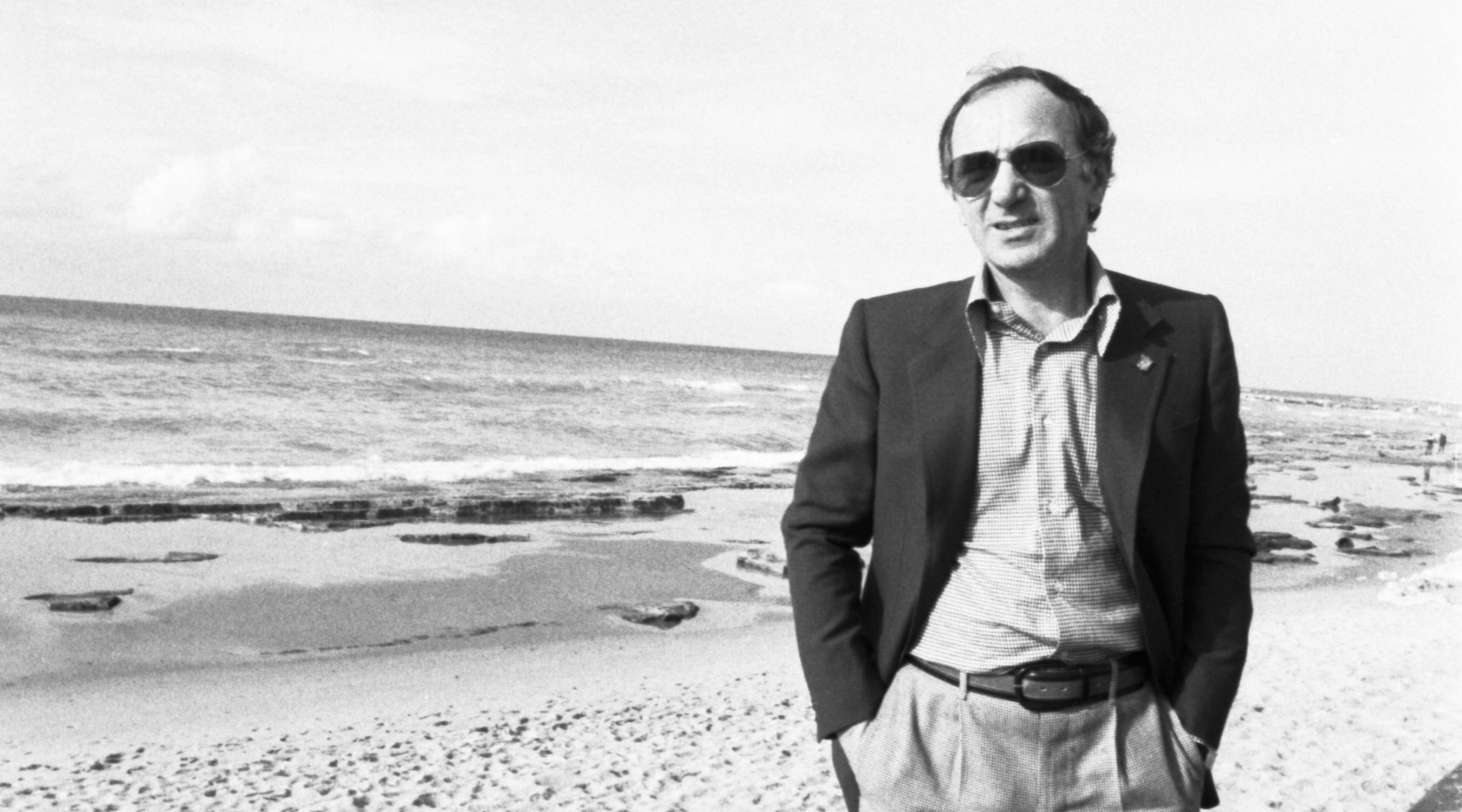
Charles Aznavour on a beach in Jaffa, Israel, January 1977. (William Karel/Gamma-Rapho via Getty Images)
YEREVAN, Armenia (JTA) — His haunting French rendition of “La Yiddishe Mama” is legendary, as is his spirited performance of “Hava Nagila” in a duet with Algerian Jewish singer Enrico Macias. In 1967, he recorded the song “Yerushalayim” as a tribute to Israel’s Six-Day War victory.
Yet Charles Aznavour, a diminutive singer and songwriter later nicknamed the “Frank Sinatra of France,” wasn’t Jewish. Born in Paris into a Christian Armenian family that prized culture, the young tenor learned basic Yiddish while growing up in the city’s Jewish quarter. And when the Nazis occupied Paris in 1940, the Aznavourians (their original surname, before Charles shortened it) risked their lives to save Jews from deportation.
Aznavour died in October 2018 at the age of 94. During his nearly 80-year career, he recorded over 1,400 songs in seven languages, sold around 200 million records and appeared in more than 90 films. His duets with other stars, including “Une vie d’amour” with Mirelle Mathieu, and his witty multilingual lyrics — the 1963 hit “Formidable” is a prime example — thrilled audiences worldwide. In 1998, Aznavour was voted Time magazine’s entertainer of the 20th century.
May 22, 2024, will mark the 100th anniversary of Aznavour’s birth, and many events are planned next year to celebrate that milestone. A violent conflict in September between Armenia and neighboring Azerbaijan has made the rollout more difficult, but eventually, his admirers hope to inaugurate a large museum and cultural center in Yerevan to honor the various facets of Aznavour’s life — including the warm ties he cultivated with Israel and Jews.
“We started to work on this idea while my father was still among us,” said Nicolas Aznavour, 46, son of the famous chansonniere and co-founder of the nonprofit Aznavour Foundation. “He recorded the audio guide, so he’s the narrator of his own story.”
The foundation occupies a large building overlooking the Cascades, a series of giant limestone stairways that form one of Yerevan’s most prominent landmarks. A forerunner of the charity, the Aznavour for Armenia Association, was established in 1988 following the massive earthquake that struck Armenia — then a Soviet republic — killing 25,000 people, leaving hundreds of thousands homeless and propelling Aznavour’s philanthropic work.
Since then, the family has raised money for humanitarian projects throughout Armenia, while also funding cancer and Alzheimer’s research and aiding victims of Haiti’s 2010 earthquake.
After Armenia’s bruising 44-day war in 2020 with Azerbaijan over the disputed territory of Nagorno-Karabakh, the foundation delivered 175 tons of food, clothing, medical supplies and other aid to more than 42,000 ethnic Armenians displaced by the fighting.
Between that war, the COVID-19 pandemic and Azerbaijan’s recapture of the area three months ago — leading to the exodus of close to Karabakh’s entire population to undisputed Armenian territory — the foundation’s $10 million museum and cultural center has endured numerous delays.
Upon completion, one room of the future museum will contain the nearly 300 prizes Aznavour received from around the world during his lifetime. That includes the Raoul Wallenberg Award, presented to Aznavour in 2017 by Israel’s former president, Reuven Rivlin, in Jerusalem, in recognition of his family’s efforts to protect Jews and others in Paris during World War II.
Aznavour’s son was present when his father, then 93, received the medal from Rivlin on behalf of the singer’s parents and his older sister Aida, who is now 100.
“It’ll be an important part of the exhibit,” he told the Jewish Telegraphic Agency in a recent interview. “My grandparents, who had fled the Armenian genocide in Turkey, settled in France but ultimately wanted to go to the U.S. And when they saw what was happening to the Jews, they could not stay idle.”
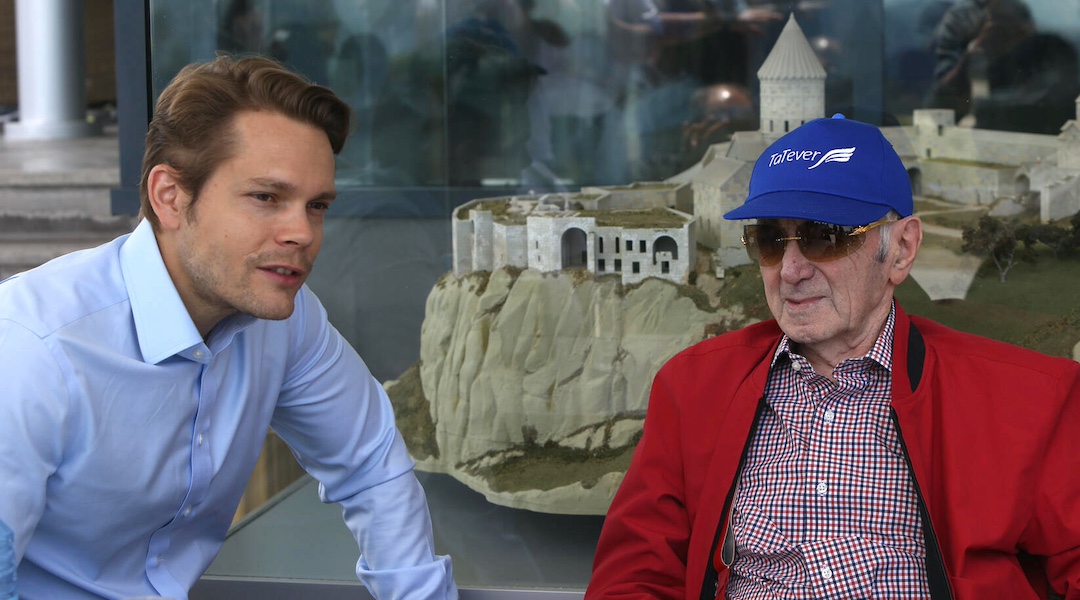
Nicholas Aznavour, left, with his father. (Aznavour Foundation)
That compassion is what led the family to shelter Jewish acquaintances in their small, three-room apartment at 22 rue de Navarin, in the 9th arrondissement of Paris. The eventual museum will consist of 10 rooms, taking visitors on a journey that begins with the Armenian genocide and continues with Aznavour’s early life in Paris.
“We want to tell the story of their resistance, how they helped not only Jews but also Armenian soldiers who were recruited by the Germans against their will,” said Tatev Sargsyan, chief operating officer of the Aznavour Foundation. “His father worked in a restaurant where the Nazis visited.”
According to a 2016 book by Israeli researcher Yair Auron, “Righteous Saviors and Fighters,” Aznavour and his sister would help burn the Nazi uniforms of Armenian deserters and dispose of the ashes. They also hid members of a French underground resistance movement who were being pursued by the Gestapo — something the modest Aznavour rarely talked about.
“It’ll be more of an immersive experience — something that you feel rather than just see,” Nicolas Aznavour said of the planned 32,000-square-foot museum. Hundreds of artifacts besides the medals and awards will be displayed, including Aznavour’s clothing, his favorite sunglasses and dozens of posters advertising movies in which he starred. (Among them: “The Tin Drum,” a 1979 German thriller in which Aznavour plays a kind Jewish toy vendor who kills himself after the Nazis vandalize his store and burn down the local synagogue.)
“Aznavour didn’t want this to be just a museum commemorating himself. He wanted it to be a cultural and educational center,” said Sargsyan. “He always spoke about the importance of empowering youth because he had so few opportunities when he was starting out in Paris. The idea is to create a platform for local musicians, and the museum is just one of the components.”
The foundation has formed a partnership with the French government to establish a French Institute within the future center, which will offer a wide range of cultural and educational activities. Among other things, there will be music lessons with hands-on experience in a recording studio. Artists will have the opportunity to perform live on stage.
In addition, experts will teach courses in film, theater and production. These classes will include film screening, featuring some of the 90 movies in which Aznavour himself starred.
Aznavour’s music remains immensely popular not only in France and other francophone countries such as Belgium, Canada, Lebanon, Syria, Morocco and Tunisia, but also in Argentina, Brazil, Israel, Japan, Russia and, of course, at home.
“Aznavour is a national treasure for the Armenian people,” said Lilit Papikyan, human resources manager at DataArt, a Yerevan software company. “His music evokes feelings of nostalgia, longing and pride in the hearts of all Armenians, both here and in the diaspora.”
Last April, the Tel Aviv suburb of Petah Tikva renamed a municipal park after Aznavour, in the presence of Mayor Rami Greenberg and Arman Hakobian — Armenia’s ambassador to Israel — as well as officials of the French Embassy and the Armenian Patriarchate of Jerusalem.
“During World War II, the Aznavourian family saved numerous Jewish lives,” said community leader Artiom Chernamorian, founder of a nonprofit group called Nairi Union of Armenians in Petah Tikva. The suburb which is home to a sizable Armenian ethnic community. “This gesture symbolizes the unbreakable bond between the Armenian and Jewish people, two nations that have endured unspeakable tragedy.”
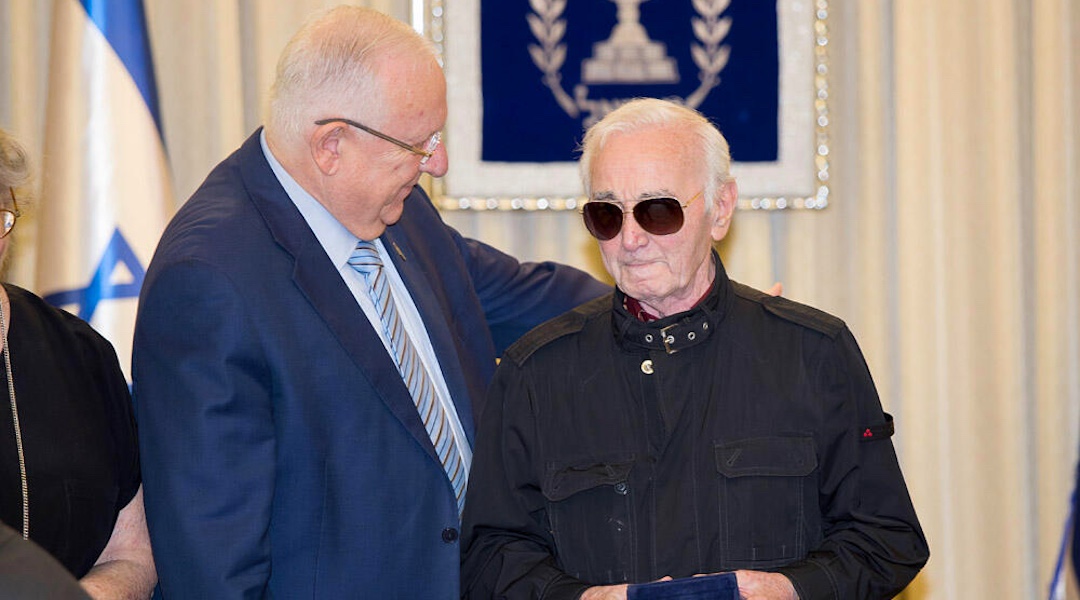
Aznavour receives an award from then-Israeli President Reuven Rivlin in 2017. (Aznavour Foundation)
Yet the influential singer wasn’t shy about calling out his Jewish friends over Israel’s refusal to officially recognize the Ottoman Turkish genocide of 1.5 million Armenians during World War I. Nor did he hold back criticism of Israel’s growing friendship with energy-rich Azerbaijan, which since 1993 has been ruled by the Aliyev family dynasty and is home to some 15,000 Jews.
This past March, amid warming ties between Israel and Turkey, Azerbaijan opened an embassy in Tel Aviv, becoming the first Muslim Shiite country to do so. The two now enjoy extensive economic links: Azerbaijan supplies over half of Israel’s crude oil imports and has also become its top buyer of weapons after India, a fact that clearly pains the younger Aznavour.
In early October, four days before the Hamas massacre of 1,200 Israelis sparked the current war in Gaza, vandals protesting Israel’s alliance with Azerbaijan desecrated Armenia’s only synagogue. They later posted on social media that “Jews are the enemies of the Armenian nation, complicit in Turkish crimes.” No arrests were made.
“I think it’s a complex situation,” Nicholas Aznavour told JTA. “We have friends who totally support recognition of the Armenian genocide. But more than the Turkish reaction, there’s a political reality, and the reality is that the interests of Israel align with those of Azerbaijan.”
Politics aside, that’s a “dangerous compromise,” he warned. “In the long term, it’s a bad strategy, because when you align yourself with dictatorships, it’s like putting one foot in the grave.”
This article originally appeared on JTA.org.

I hope you appreciated this article. Before you go, I’d like to ask you to please support the Forward’s award-winning, nonprofit journalism during this critical time.
Now more than ever, American Jews need independent news they can trust, with reporting driven by truth, not ideology. We serve you, not any ideological agenda.
At a time when other newsrooms are closing or cutting back, the Forward has removed its paywall and invested additional resources to report on the ground from Israel and around the U.S. on the impact of the war, rising antisemitism and the protests on college campuses.
Readers like you make it all possible. Support our work by becoming a Forward Member and connect with our journalism and your community.
Make a gift of any size and become a Forward member today. You’ll support our mission to tell the American Jewish story fully and fairly.
— Rachel Fishman Feddersen, Publisher and CEO
Join our mission to tell the Jewish story fully and fairly.








